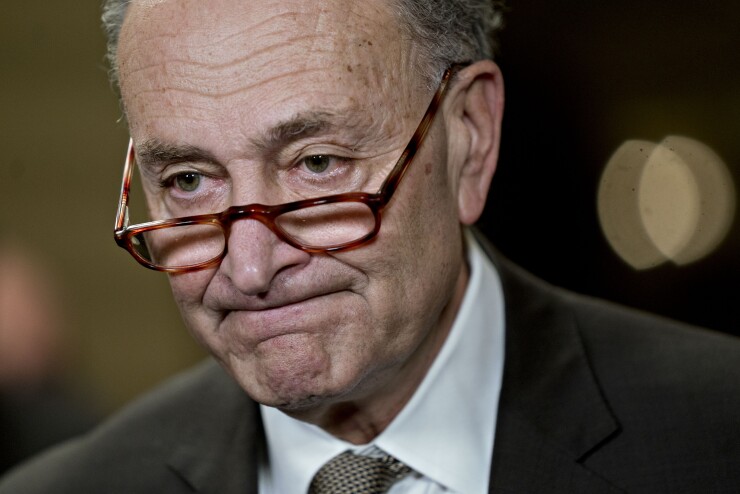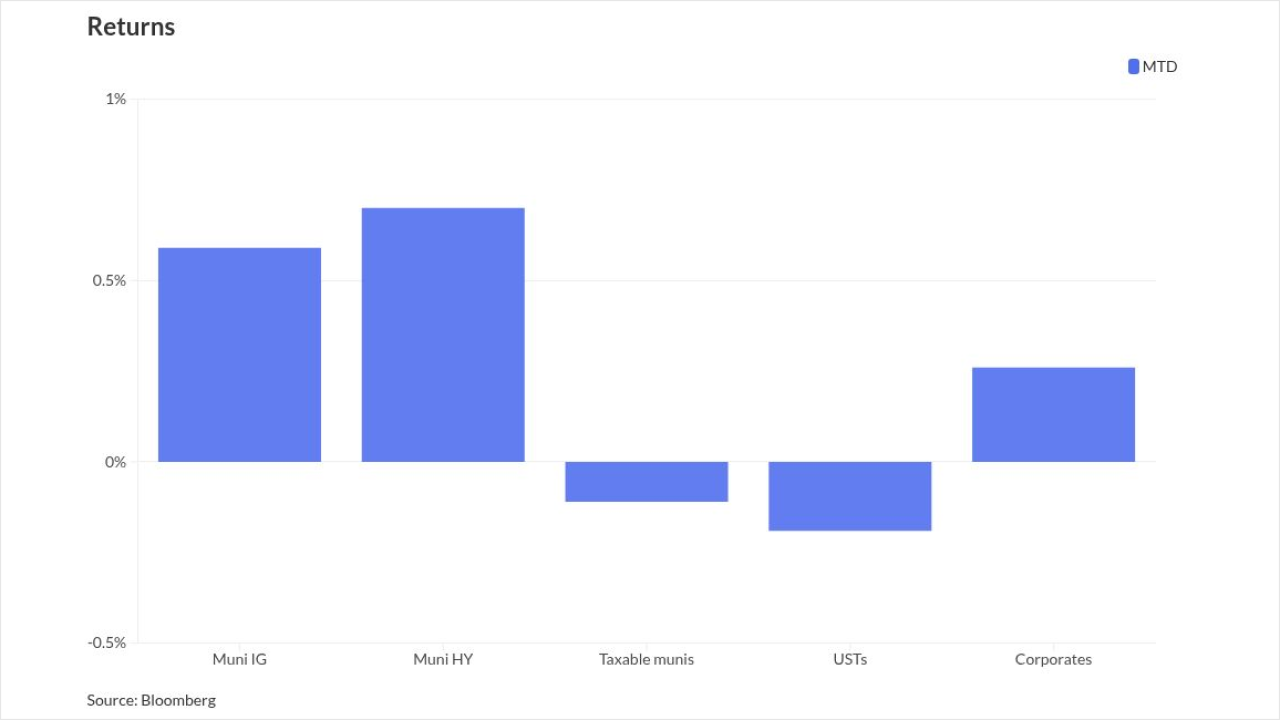
The Senate returns to work facing multiple deadlines with a mission to amend and pass the House's One Big Beautiful Bill Act (OBBBA), which raises the deduction on state and local taxes and phases out some clean energy tax credits, which is already raising opposition from the minority.
"This so-called 'big, beautiful bill' is nothing short of a big, bad blow to America's clean energy economy and a huge amount jobs across the country," said Senate Minority Leader Chuck Schumer D- N.Y.
"If Republicans succeed in gutting these tax credits, it will mean higher monthly energy bills for families and small businesses, fewer jobs for hardworking Americans, and a dangerous step backward in innovation on energy."
In April Republican Senators Lisa Murkowski of Alaska, John Curtis of Utah, Thom Tillis of N.C. and Jerry Moran of Kansas sent a letter to Senate Majority Leader John Thune, S.D., cautioning against the full-scale repeal of current green energy credits.
Municipal bond issuers and the public power industry have been tapping green energy credits and turning them into cash thanks to provisions in the Inflation Reduction Act that allows non-profit organizations to access the elective pay program.
About $84 billion worth of public power infrastructure investment, including green energy projects have been financed by munis over the past ten years.
The reconciliation bill in its present form phases out some of the renewable and clean energy credits, along with manufacturing, industrial, transportation, and vehicle credits, while eliminating the transferability of credits.
It's estimated the bill would bill would extract $522 billion from local economies across the country, according to a Washington Post report.
OBBBA also
This SALT caucus, a group of lawmakers representing high tax states and the muni community notched a win with raising the cap, but support in the Senate is less than certain.
Sorting out what happens with SALT and energy credits will play out against a mix of self-imposed and hard deadlines.
In April, Treasury Secretary Scott Bessent set a July 4 deadline to have the package wrapped up and ready for a signature.
July 4 also marks the day when Treasury is expected to announce the X date, the nickname for the day when the government officially runs out of money.
The final cost of the OBBBA will play a major role in negotiations over raising the debt ceiling before the House adjourns on July 24 and the Senate takes off on August 2.





